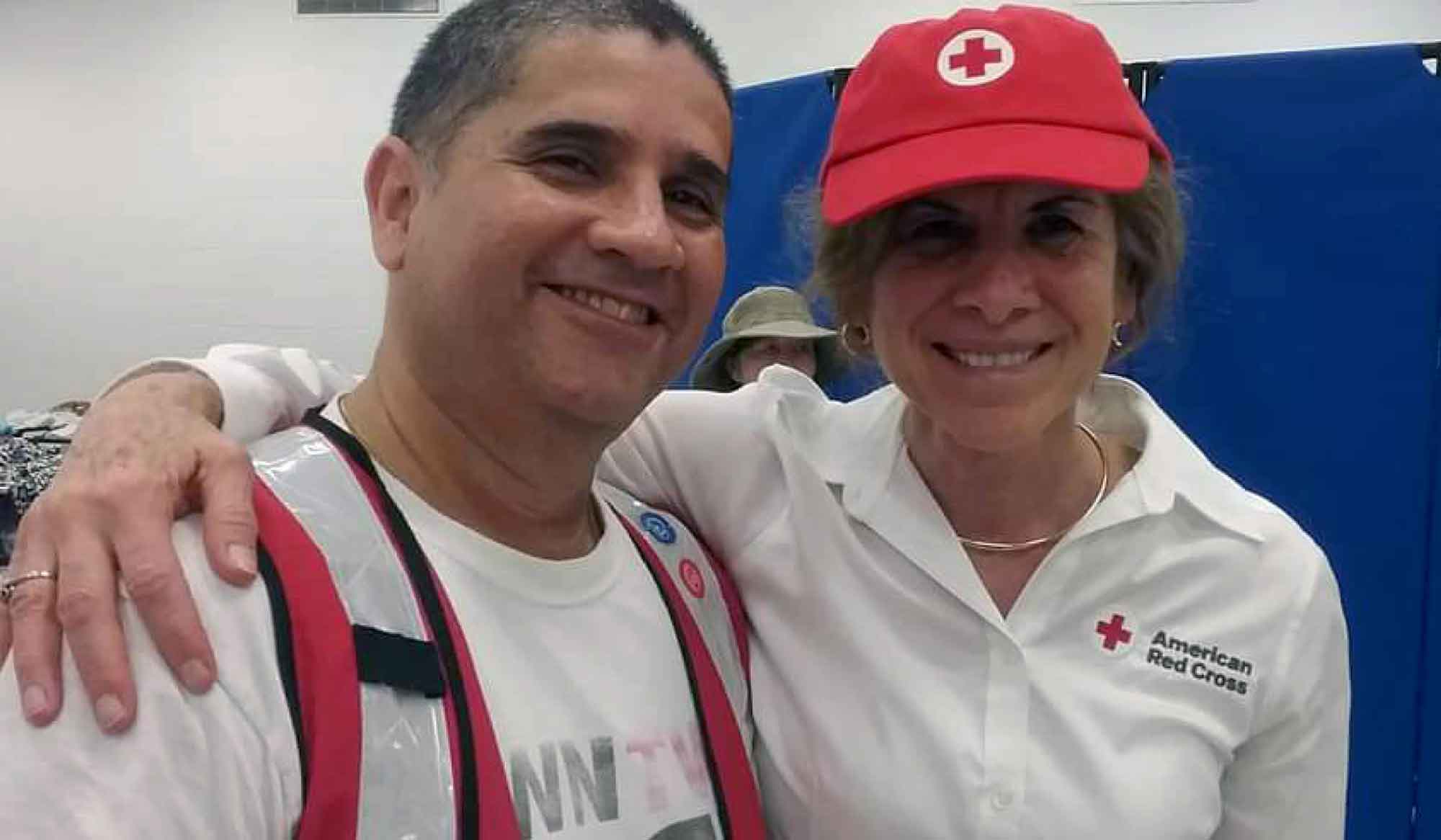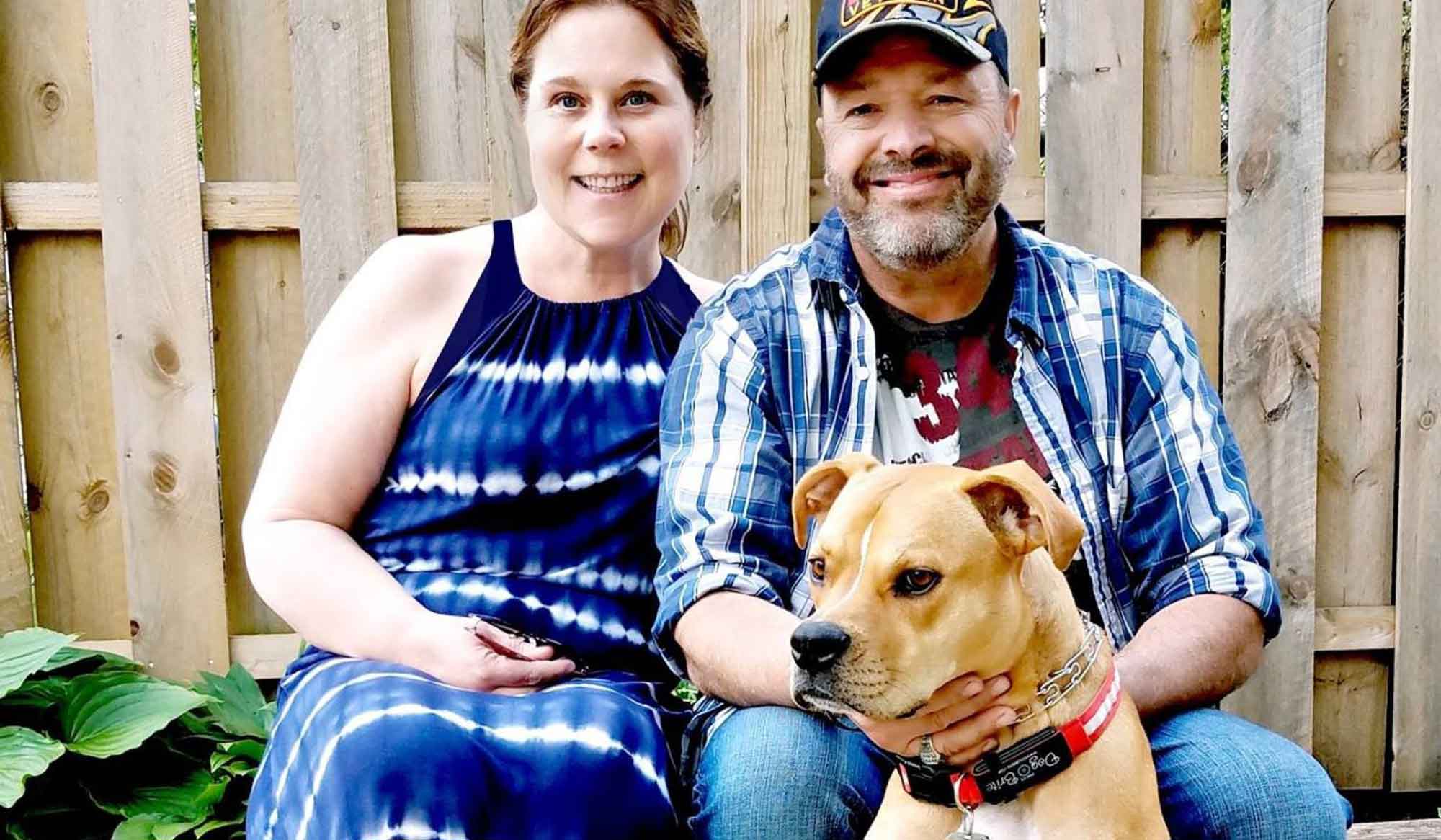| |
It’s April and this time of year does provide an opportunity to appreciate the beauty around us. And while coronavirus ( COVID-19) still presents unique challenges to us all, we are also learning to overcome these hurdles.
In this issue read how the Red Cross is reacting to needs of veterans and their caregivers. See why supporters like Dr. Luis Riera joined the Legacy Society. And learn about some tax-wise planning and philanthropic strategies that allow you to make a meaningful charitable gift while potentially enhancing your own, and your family’s, future financial well-being.
Rebecca Locke
Executive Director, Gift Planning
American Red Cross
|
| |
|
 |
| |
Dr. Riera and Red Cross CEO Gail McGovern helping those affected by Hurricane Michael, October 2018 |
|
| |
Dr. Luis Riera–Dedicated Volunteer and Legacy Society Member
Born in Caracas, Venezuela, Dr. Luis Riera has always been interested in giving back to his community and beyond. He started as a Cub Scout, continued on as a Boy Scout, and then joined the Red Cross Youth at age 17. His first involvement with the American Red Cross was through First Aid/CPR Classes and lifeguarding.
Luis now lives in Miami, Florida and is in his 40th year volunteering with the Red Cross. He volunteers with his local Red Cross, the South Florida Region, and he is an international delegate for the Spanish delegation of International Federation of Red Cross and Red Crescent Societies. He has been involved with the Red Cross at many levels, including serving as a volunteer in over 25 countries.
As a doctor, Luis has extensive training that makes him uniquely suited to help during disaster. And in his 40 years of volunteering, he has served in every type of disaster–hurricanes, earthquakes, floods, and tornadoes! In addition to medical training, he is trained in warfare paramedics and search and rescue, including high altitude search and rescue and rescue diving.
Following the earthquake in Haiti in 2010, Luis provided medical response and assistance as hundreds arrived in Miami. He was one of three people in the repatriation center at Miami International Airport for the first three days. “I didn’t sleep, I just stayed at the center for the first 72 hours. After the first three days, I worked two 12-hour shifts per week,” said Luis.
Beyond disaster volunteer work, Luis has worked in several hostile territories like Iraq and Colombia, acting as a mediator between the government and guerillas. As Luis said, “here you know that it’s safe, but dealing with guerillas in Colombia, one day you can be doing peace negotiations, and in the next ten minutes, you could be running for your life.”
For Luis, Disaster Response is the most important part of the Red Cross mission. He is grateful that none of his closest relatives or friends have ever needed the Red Cross assistance, but as a volunteer he says, “I have seen what we can do, even just by being present. By the people seeing our vests, our cars, and our smiles.”
Luis would like to know the Red Cross movement and its many programs will continue after he is gone. That is why he became a member of the Legacy Society by naming the Red Cross as a beneficiary of his will. “I believe it will be my way of continuing to assist the movement when I am no longer here to do it in person,” he says.
When asked if we could share his story and his decision to become a Legacy Society member, Luis said, “Many already know my passion for the Red Cross, that the Red Cross has been an immense part of my life (professionally, socially, educationally). What better way to let others know that ‘normal people’ like me can actually make a difference?”
If you would like information about how you can support our mission and help those in need by creating your own legacy like Luis has done, please contact the Gift Planning Office at 1-800-797-8022, ext. 5, giftplanning@redcross.org.
|
|
| |
|
 |
| |
A Gift That Endures
Thanks to your generosity throughout the years, the American Red Cross has been able to prevent and alleviate human suffering in the face of emergencies. Your regular contributions are a source of support and affirmation for our crucial work. With a charitable bequest–a gift you make through your will–you can be sure your support endures, even after you are gone.
Your gift can be a dollar amount, specific items, or a percentage of your estate. Depending upon your situation, you might direct that your gift to the Red Cross is to be made only after you have taken care of your other heirs. And, with a charitable gift through your will, you retain the right to alter your contribution should your circumstances change.
You don’t have to write a whole new will to make a gift. Your gift can be as simple as adding the Red Cross as a beneficiary of a bank account, retirement plan, or other financial account. Or you can add an amendment to your existing will. Your charitable bequest allows you to continue your impact long after you are no longer here. If you choose to direct your charitable bequest to an endowment fund, you will be providing a perpetual source of support for people everywhere. Just as your lifetime contributions have made a tangible difference in the lives of those around you, your charitable bequest can extend your influence and leave behind an important message about your personal values and what mattered most to you.
You have responsibly and prudently managed your affairs throughout your lifetime and, naturally, you have clear preferences for how your estate will be distributed to those you leave behind. We hope that the Red Cross has earned a place among those you choose to remember.
We are very grateful for your generous support and for your belief in our work. Our team can discuss a charitable bequest, as well as other tax-smart ways you can continue to make a difference. When you are ready, we will be here to help you shape a charitable gift plan that suits your needs and allows you to keep helping with our important work.
For information on making a gift by will or specific language to use, contact the Gift Planning Office at 1-800-797-8022, ext. 5 or at giftplanning@redcross.org.
|
|
| |
|
 |
| |
COVID-19 Isolation Continues, Military Caregiver Network Grows
While the pandemic persists, injured service members, veterans and their caregivers face isolation and feelings of depression. Prior to 2020, social isolation was identified as a critical issue among wounded military and veteran caregivers. This study is what prompted the creation of the American Red Cross Military and Veteran Caregiver Network (MVCN). This network offers peer-based support and services to those providing care to wounded, ill or aging service members and veterans.
A Network of Support—Today, the need for connectedness is crucial for this community. COVID-19 has isolated injured veteran and military families from their outside network. Since the onset of the coronavirus in the United States in March of 2020, the MVCN’s online caregiver community has more than doubled in size. Today, there are over 7,000 active participants who connect, engage, learn and train online. Ever-expanding, the MVCN also opened its online doors to a new group–caregivers who are veterans. Together, caregivers of all different backgrounds are connecting through a secure supportive network that is accessible without having to leave home.
Jenn Paulson: “My Cup Is Filled”—Jenn Paulson is an Elizabeth Dole fellow, a caregiver to her wounded Iraq combat veteran husband, Keith. In 2020, Jenn also adopted four of her grandkids. As a Red Cross volunteer through the MVCN, she’s passionate about empowering other caregivers.
“After my husband’s deployment to Iraq he was driving in our town when weather sirens went off and he said it sounded just like incoming mortar sirens in Iraq. He ran out of his car, jumped in the ditch and called me, saying, ‘They’re bombing us, you need to get safe.’ He thought he was back in Iraq and was warning me. It was then I knew, everything had changed.” That is when Paulson knew they needed to get help.
She shared that over the last year caregivers have been hit hard. “COVID-19 is really bringing the needs of family caregivers to light. We’re having to take care of our wounded vets, teach kids and manage the household. We’ve been living in this state for so long now with no end in sight. Hope is all we have. People are really isolated and feel like they really need to connect, and they want to do it any way possible. In fact, no one had ever asked me about how I’m taking care of myself until recently.”
Through the MVCN, Paulson connects with other caregivers and leads online groups as a trained facilitator. “Just being a part of this caregiver community, I’ve seen so much growth. Every caregiver’s situation is different–you can be in a city or in the country, young or old and still be isolated.
Caregiving is so hard and if I had to do it alone, I don’t think I could do it. As a leader, my cup is filled by making other people happy, by being able to bring joy and hope to others.“
Connect with the MVCN—If you or someone you know would like to join the MVCN’s online community or train to become a peer supporter, please visit redcross.org/caregivers or download the Red Cross Hero Care app and click on the Caregiver Support tile.
|
|
| |
|
 |
| |
Tax incentives for giving in 2021
Last year’s “CARES Act” provided two special incentives for charitable giving in 2020, which have been extended to 2021 .
Ordinarily, donors who do not itemize their income tax deductions receive no income tax benefit from their charitable giving because they cannot claim a charitable deduction. However, a temporary rule enacted for 2020 has been extended to 2021. It allows donors who contribute cash to a public charity, like the American Red Cross, to claim a special deduction of up $300 whether or not they itemize. Married couples filing jointly can claim up to $600. If you are among the almost 90% of taxpayers who do not itemize, we hope you will take advantage of this significant tax savings for 2021.
The second incentive is for donors who do itemize their deductions. In 2021, donors can take advantage of a special rule allowing a charitable deduction of up to 100% of adjusted gross income for cash contributions to public charities. Especially generous donors may still find themselves with excess charitable deductions carried forward to future years. If this is your situation, rest assured: your carry forward charitable deductions are still available to you.
Finally, all donors–itemizers and non-itemizers–should consider the additional tax savings from a gift of appreciated property. Consider, for example, a donor who owns stock currently worth $10,000 which cost her $2,000 some years ago. If she were to sell this stock, she may have to pay federal capital gains taxes and net investment income tax of as much as $1,904 on her $8,000 profit on the sale. However, if she contributes the stock to the Red Cross instead, she will pay no capital gains tax at all.
We would be happy to work with you and your advisors to craft a charitable gift plan that works for you.
For more information about how you can support our mission and help those in need please contact the Gift Planning Office at 1-800-797-8022, ext. 5 or at giftplanning@redcross.org.
|
|
| |
| |
|
|